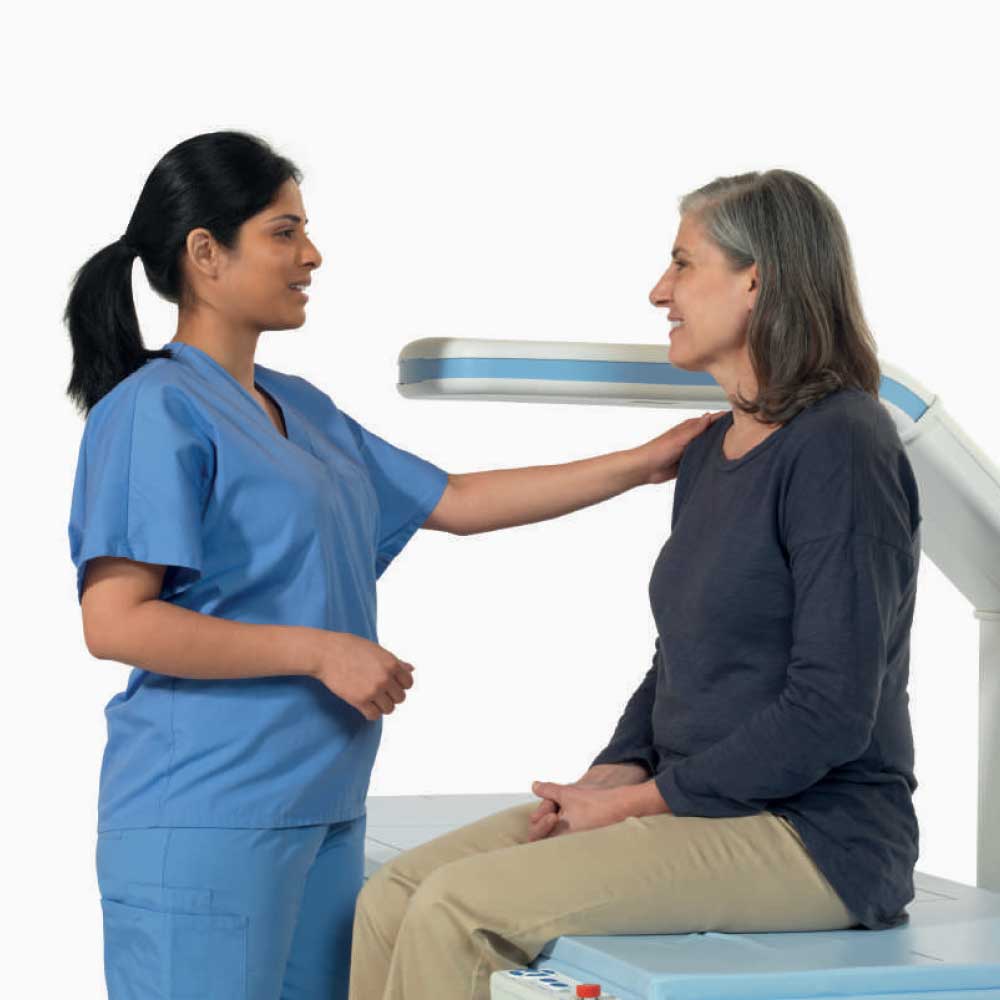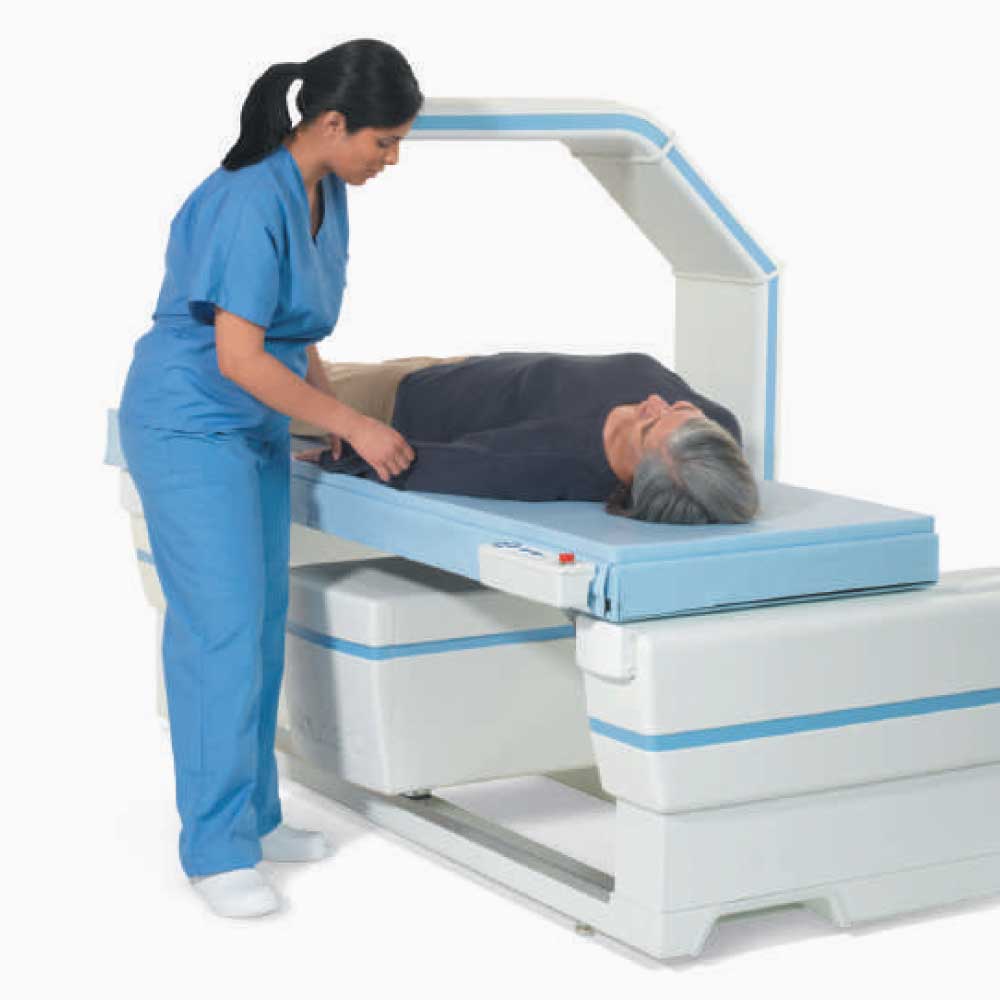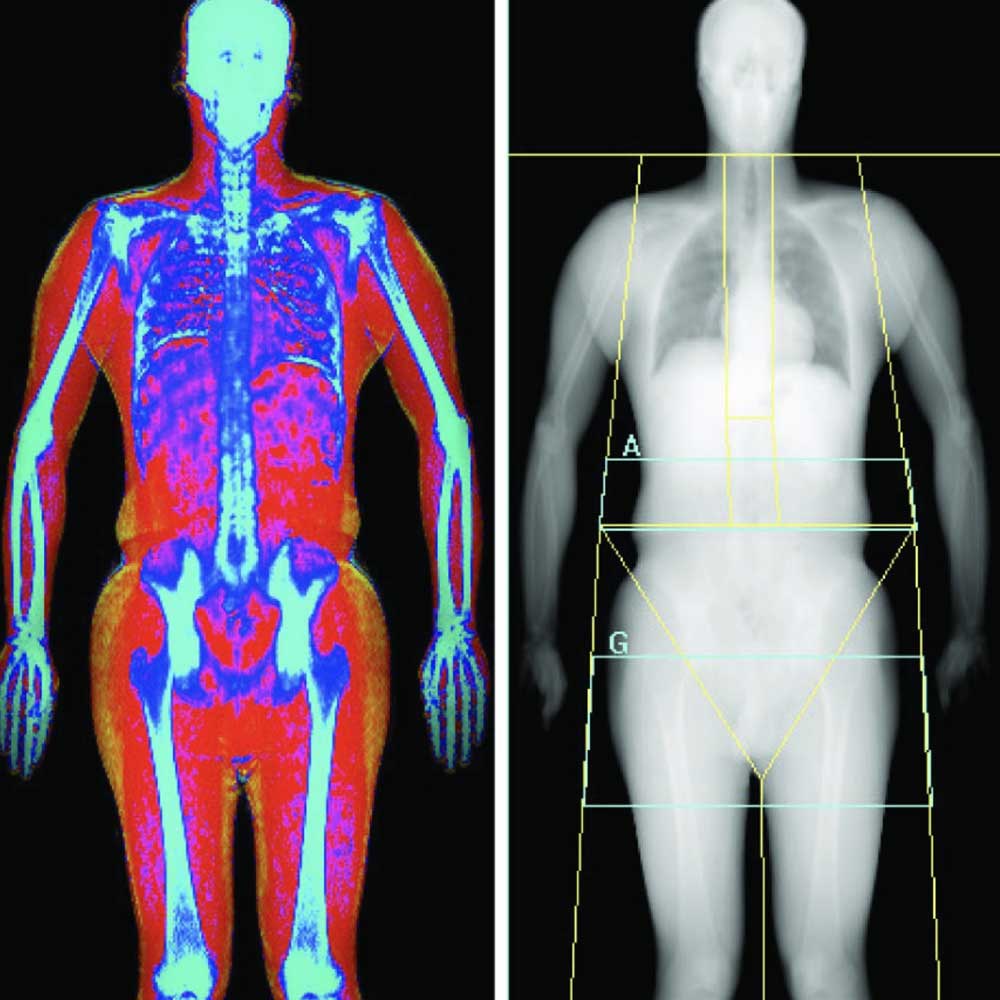
Understanding DEXA
What Is a DEXA Scan?
At IPMC Medical Center in Northeast Philadelphia, we offer advanced DEXA scans (Dual-Energy X-ray Absorptiometry) to help detect osteoporosis and assess bone health. This non-invasive, painless imaging test is the gold standard for measuring bone mineral density and diagnosing conditions that increase the risk of fractures.
A DEXA scan is a specialized X-ray that measures bone density in key areas such as the hip, spine, and sometimes the wrist or forearm. It uses two low-dose X-ray beams to calculate bone thickness and determine if you have normal bone density, low bone mass (osteopenia), or osteoporosis. DEXA scans are quick (typically under 15 minutes), require no preparation, and involve minimal radiation exposure.
Benefits of DEXA Scan
Why a DEXA Scan Matters
Discover the key advantages of DEXA scans—early detection, minimal radiation, and accurate insights into your bone health.
- Early Detection of Osteoporosis — Identify bone loss before a fracture occurs—early treatment can prevent future complications.
- Safe & Painless — Involves very low radiation and no discomfort during the scan.
- Fast Results — The test takes only minutes and provides quick, accurate readings for your doctor.
- Personalized Treatment Planning — Helps guide decisions about medication, lifestyle changes, and fall prevention strategies.
- Great for At-Risk Individuals — Especially beneficial for postmenopausal women, older adults, and those with risk factors like steroid use or family history of osteoporosis.


Imaging Excellence
DEXA Scans at IPMC – Philadelphia’s Trusted Imaging Center
At IPMC, we prioritize patient comfort, convenience, and quality care. Our on-site DEXA scan services are performed by experienced technologists using state-of-the-art imaging equipment, including the Delphi bone densitometer. The Delphi is a high-performance micro x-ray scanning machine that utilizes fan beam technology, specifically designed for detecting osteoporosis. All scans are conducted in a welcoming, patient-friendly environment. Because we’re located right in Northeast Philadelphia, it’s easy for patients from across the city and surrounding areas to access reliable bone density testing without traveling far.
Whether you’ve been referred for a routine bone density check or you’re monitoring treatment progress, IPMC offers the accuracy and support you need.
